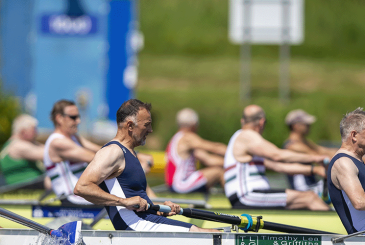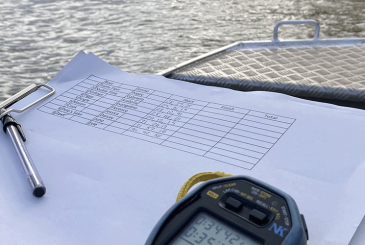It’s that time of year when the pressure rises. Former GB rower and medical student Sam Bannister shares some practical strategies to help you perform your best in the exam hall and on the water
Sculling and sweep, bow-side and stroke-side, head racing and regatta racing; rowing is a sport full of polarities. The same is true of the need to balance training and racing with schoolwork and exams. It can be all too easy to sacrifice one in favour of another or fall into the trap of believing you can only truly succeed at one. In fact, striking a balance between training and academics can push you to achieve more in both fields, so long as you approach it with the right attitude.
Tip 1: The early bird catches the worm
“Think of your journey to exams like you’re preparing for a race,” urges Sam. “You wouldn’t just turn up to Henley without doing any training; well, you might, but you wouldn’t expect to do particularly well.”
It can be easy to let time run away from you and fall foul of the ceaseless march of exams. Instead, start early and build good habits that will set you up for success. Think of it as similar to your UT2 training – it’s a way of building a solid base from which you can take the intensity up as your race (or exam) approaches.
Tip 2: The ‘four quarters’ rule
If you’re studying and training hard, you’re bound to have bad days – perhaps your erg test didn’t go to plan, the session in the pair just didn’t click, you spilt coffee on your painstakingly prepared notes, or your practice paper was a total flop.
Your weekly schedule should be more than a hastily scrawled grid on a napkin – it should dictate your day
Regardless, it can be easy to let a shoddy few minutes ruin the rest of your day; to safeguard against this risk, try mentally splitting your day into four quarters. Depending on when you wake up, an example could be:
- 5:00am – 9:00am
- 9:00am – 1:00pm
- 1:00pm – 5:00pm
- 5:00pm – 9:00pm
The idea here is that even if a nasty session ruins one of your quarters, you can still make a success of the other three. So, think about starting fresh in each new quarter.
Tip 3: Plan it all out
Your weekly schedule should be more than a hastily scrawled grid on a napkin – it should dictate your day.
Sam says: “Start by filling in your commitments, so these are your training sessions, lectures, exams as well as social events. From there, you can identify where you have gaps in your day to squeeze in revision here and there.”
“You’d be surprised,” he adds, “just how much time you have in a day when you really start to look; for example, I commute into London from Reading, so any days I’m at uni, I have a two-hour round-trip on the train, during which I can get through a couple of lectures.”
Similarly, don’t underestimate the power of combining your UT2 bike, erg or mobility session with lectures playing in the background. Granted, you’ll never be as effective as if you were sitting at your desk, but an extra pass over some of the trickier concepts might just help the penny drop.
Tip 4: Work together – or don’t
This one caused something of a rift between those we asked on our team; some find working collaboratively as a group to be hugely beneficial, especially if they’re all like-minded, and also row and study the same courses.
On the other hand, some people just can’t quite get into ‘the zone’ when working with other people. Regardless of which camp you think you fall into, it might be worth playing around – perhaps finding a dedicated study partner could kick-start your revision train if you’re comfortable sharing long library sessions with them.
Tip 5: Set boundaries
It’s Sam’s last point that is perhaps the most critical.
When you’re training and studying – both at high intensity – it can feel like a vicious cycle from which you can’t escape, but setting yourself strict boundaries can help prevent burn out.
“I won’t do any exercise or revision after 9pm,” says Sam.
“It’s massively important for both your work and training that you’re firing on all cylinders both physically and mentally – and for that, you need good sleep and time to relax.”
As every expert in the field – and every student-athlete – recognises, 16 hours a day of training and working isn’t a sustainable model over the long term. Instead, give yourself time to switch off and socialise; perhaps this happens in the late evening, perhaps at mealtimes with friends and family. Play around and find what works for you.
All in all, it’s never an easy balance to strike. Still, hopefully, by planning your days, starting early and getting to know yourself a little better, you can optimise your time at school or university and your time training, so you can walk away as champion both in the exam hall and on the water.
This article was first published in May 2022.










